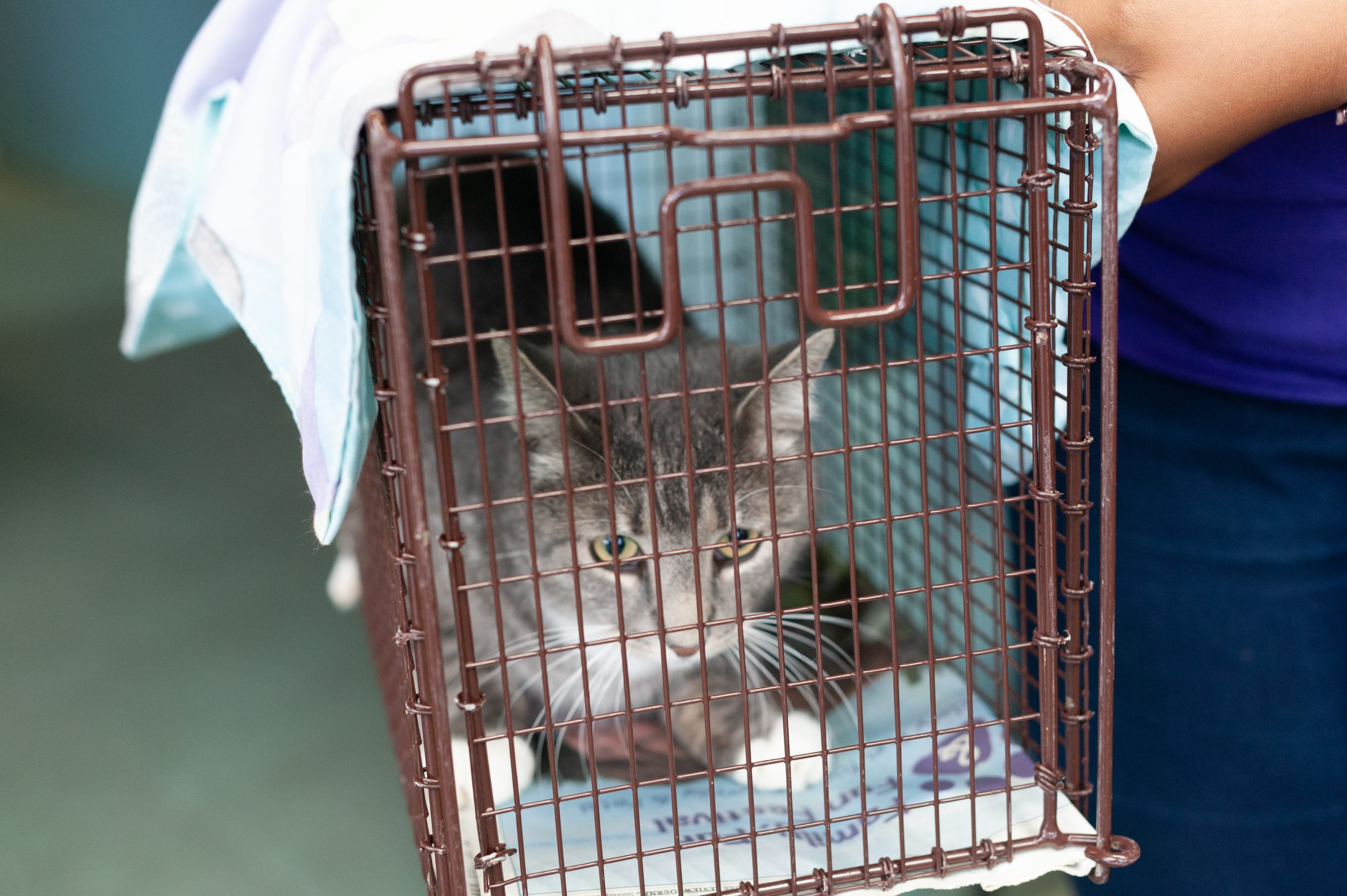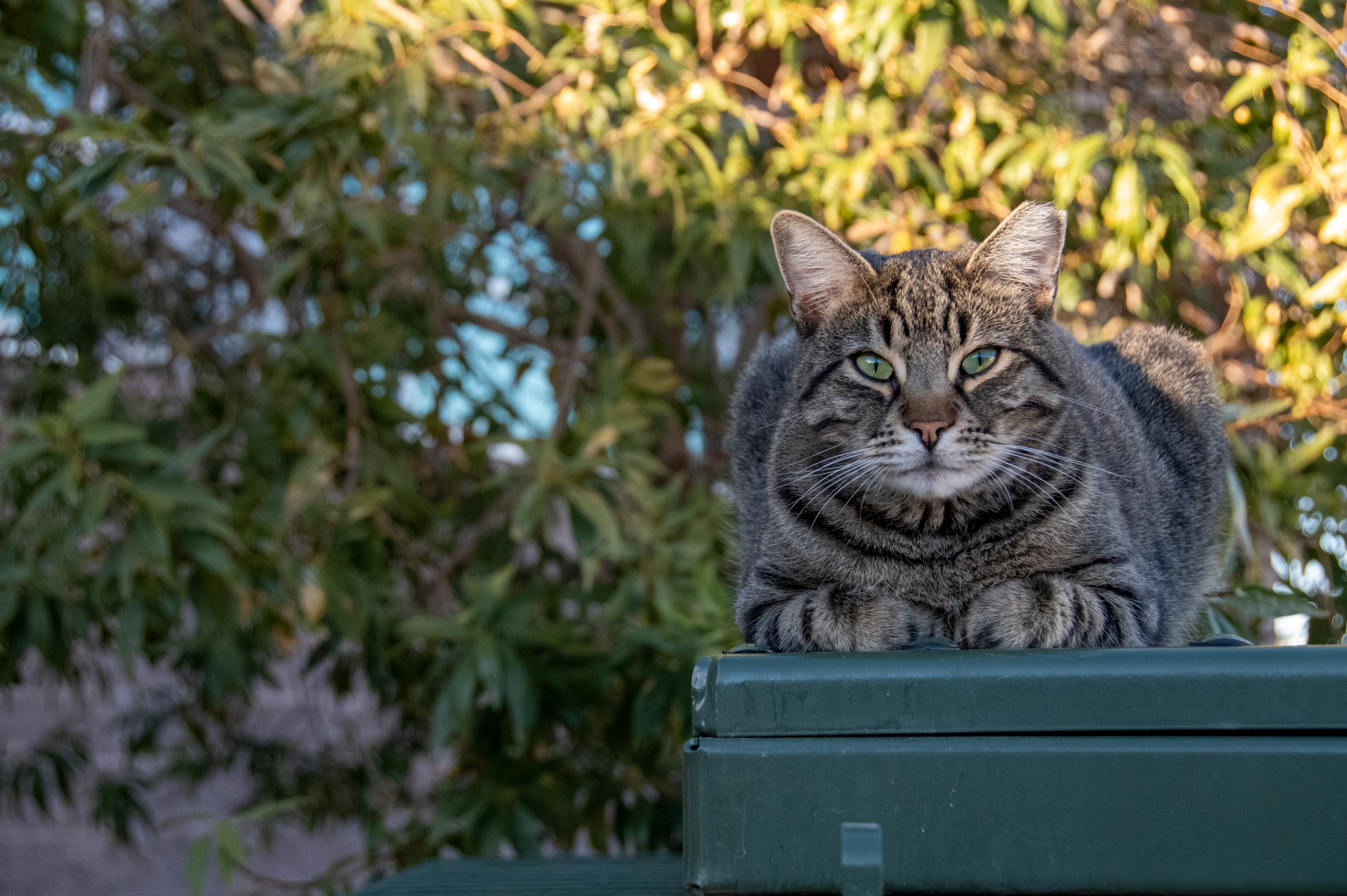Seeing outdoor cats?
Outdoor cats that are free-roaming or feral are considered “Community Cats.” These cats sometimes live in groups called colonies and choose their territories because they have a food source and shelter there. They repay the favor of this beneficial set-up by keeping additional cats from moving into the neighborhood as well as controlling rodent populations for their human neighbors.
These cats do not have to be brought into the shelter to be rehomed, they already have a home! They are perfectly happy living in their colonies and neighborhoods. If a cat is healthy, it has found food and shelter and will be able to continue to thrive on its own. Plus, although some Community Cats may tolerate human contact, most would not be happy in a traditional home setting.
Instead, free-roaming cats and the neighborhoods they live in can benefit from Trap Neuter Return (TNR), where cats can be humanely trapped, brought in to be spayed/neutered and vaccinated, receive an ear-tip so we know they have already been sterilized, and be returned to their communities.
Whether you love or hate the cats in your neighborhood, the Community Cats Program is the answer!
Love the cats in your neighborhood?
- TNR helps stabilize the population: Once TNR is in place, cats will no longer reproduce. As long as the colony continues to be managed appropriately, the population will decline naturally.
- TNR improves the lives of cats: TNR relieves cats of the physical and mental demands and consequences of mating, pregnancy, and fending for their young.
- TNR improves cats’ health: All cats are vaccinated, preventing the spread of disease. Spaying/neutering reduces the chance of cats developing mammary/testicular tumors and other health concerns.
- TNR increases cat safety: With a decreased drive to mate, cats are less likely to suffer injuries from fights, roadways, etc.
- TNR helps save lives: feral cats brought to the shelter are usually not suitable indoor pets, so are not candidates for placement by adoption. TNR allows another option to live out their lives in their preferred outdoor homes.
- TNR reduces shelter admissions: This reduces shelter operating costs and increases shelter adoption rates, thereby allowing the shelter to save the lives of even more shelter animals!
Hate the cats in your neighborhood?
- TNR reduces or eliminates undesired behaviors: These include roaming, yowling, spraying, and/or fighting, which all generally cease after sterilization.
- TNR decreases the size of colonies: Once sterilized, cats no longer have new litters of kittens and their numbers decrease naturally and stably over time.
- TNR keeps new cats from moving in: When a cat or cats are removed from an area where there is a food source, new cats move in and/or the remaining cats continue to breed to capacity, contributing to overpopulation.
- TNR supports public health: All cats are vaccinated against rabies. These vaccinations protect the cat, community members, and other animals coming into contact with them, leading to healthier communities.
- TNR improves relationships: Not only does TNR make cats better neighbors, it helps create harmony between neighbors of the human variety when colonies are managed appropriately and responsibly.
- TNR is fiscally and socially responsible: Community Cats Programs help shelters operate efficiently and maximize lifesaving.
Either way, we can help you!

Need help caring for your cat colony? Contact us for support at communitycats@animalfoundation.com. Inquiries are generally returned within 7–10 days.
Please note: we do not remove or relocate community cats. Instead, our goal is to provide you with tools and advice so you and your neighbors can coexist peacefully with the cats in your community.
If you’re requesting assistance for a community of large cats (10+ cats), please fill out the questionnaire at the button below.
If you’re working on a smaller colony, we’re still here to help—please reach out to us at communitycats@animalfoundation.com for tips, guidance, and resources.

